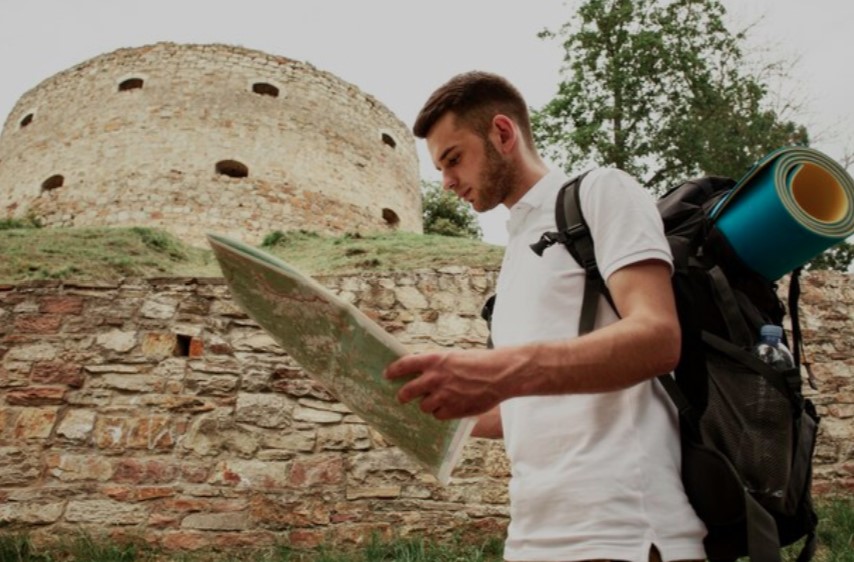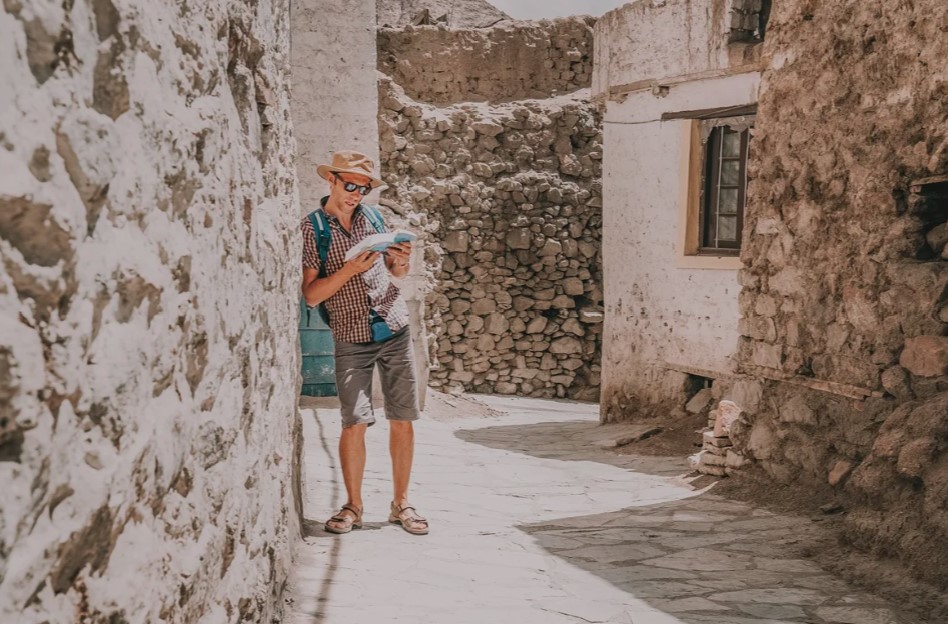Travel is one of life’s greatest pleasures. It opens our eyes to new cultures, cuisines, and landscapes, broadening our horizons and creating memories that last a lifetime. Whether you’re a seasoned globetrotter or a first-time explorer, having the right resources can make all the difference in the world. In this article, we’ll delve into the invaluable tools known as country Travel Guides, city Travel Guides, and the allure of off-the-beaten-path adventures. These resources serve as compasses for your journeys, helping you navigate unfamiliar terrain, discover hidden gems, and make the most of your travels.
Country Guides: Unlocking the Essence of a Nation
Country guides are like the prelude to an epic novel. They offer a glimpse into the soul of a nation, laying the foundation for your travel experience. Whether you’re planning a visit or simply seeking to deepen your understanding of a foreign land, country guides are essential companions on your journey.
- Unveiling Cultural Riches: A well-structured country guide serves as a cultural map. It introduces you to the history, traditions, and social nuances that shape a nation. From the ancient temples of Kyoto to the vibrant festivals of Rio de Janeiro, these guides provide insights that go far beyond surface-level tourism.
- Navigating Logistics: Travel logistics can be daunting, especially when exploring a country for the first time. Country guides are your logistical saviors, offering essential information on visas, currency, transportation, and local customs. They equip you with the knowledge needed to seamlessly navigate any foreign environment.
- Sampling Culinary Delights: One of the joys of travel is indulging in local cuisine. Country guides are treasure troves of culinary recommendations, directing you to street food stalls, family-run restaurants, and hidden gastronomic gems. They ensure that every meal becomes a memorable adventure.
- Suggesting Itineraries: Planning a travel itinerary can be overwhelming, with countless attractions vying for your attention. Country guides provide sample itineraries tailored to your interests, whether you’re a history buff, nature lover, or art enthusiast. These itineraries save time and help you make the most of your trip.
- Understanding Safety: Every destination has its own safety considerations. Country guides offer invaluable insights into the political climate, health precautions, and potential risks. Armed with this knowledge, you can travel with confidence, making informed decisions to protect yourself and your loved ones.
- Connecting with Locals: A significant aspect of travel is connecting with the local population. Country guides often include tips on language essentials and cultural etiquette, facilitating interactions with residents. These connections can lead to meaningful encounters and a deeper appreciation of the destination.
City Guides: Navigating Urban Labyrinths
Once you’ve chosen your destination, it’s time to dive into city guides. These resources take you beyond the national borders and into the heart of a metropolis. From New York to Tokyo, city guides are the key to unlocking the secrets of bustling urban centers.
- Discovering Hidden Gems: While iconic landmarks are a must-see, city guides also reveal hidden gems that might otherwise go unnoticed. Whether it’s a charming neighborhood cafe, a local art gallery, or an offbeat street market, these guides introduce you to the city’s lesser-known treasures.
- Mastering Public Transportation: Cities can be sprawling, and public transportation can be bewildering. City guides simplify the process by providing subway maps, bus routes, and fare information. This knowledge ensures that you can efficiently navigate the city and avoid the stress of getting lost.
- Feeding Your Interests: Cities are diverse ecosystems, catering to a wide range of interests. Whether you’re a history buff, an architecture enthusiast, a fashionista, or a foodie, city guides offer tailored recommendations. They help you curate experiences that align with your passions.
- Staying Informed: Cities are constantly evolving. New restaurants open, cultural events take place, and neighborhoods transform. City guides keep you up-to-date with the latest happenings, allowing you to make spontaneous choices and take advantage of unique opportunities.
- Dining and Nightlife: The culinary and nightlife scenes in cities are dynamic and ever-changing. City guides provide up-to-date restaurant reviews, nightclub recommendations, and information on local food specialties. This ensures that you can savor the city’s vibrant nightlife and culinary offerings.
- Shopping and Souvenirs: Shopping enthusiasts will appreciate the shopping guides within city guides. They direct you to the best shopping districts, markets, and boutiques. Whether you’re hunting for souvenirs or high-end fashion, these guides help you find what you seek.

Off-the-Beaten-Path Adventures: Embracing Authentic Experiences
While country and city guides are indispensable, there’s something undeniably alluring about venturing off the beaten path. Off-the-beaten-path adventures offer a chance to escape the tourist crowds and immerse yourself in authentic, unspoiled experiences.
- Exploring Natural Wonders: Some of the world’s most breathtaking natural wonders are tucked away from the main tourist routes. Off-the-beaten-path adventures lead you to pristine landscapes, from remote beaches and secluded waterfalls to untouched forests and serene lakes.
- Meeting Indigenous Communities: Indigenous cultures often thrive in remote regions. Traveling off the beaten path provides opportunities to engage with these communities, learn about their traditions, and gain a deeper appreciation for their way of life.
- Preserving the Environment: Many off-the-beaten-path destinations prioritize sustainability and responsible tourism. These adventures often involve eco-conscious accommodations, wildlife conservation efforts, and community-based tourism initiatives that benefit local populations.
- Embarking on Epic Journeys: For adventure seekers, off-the-beaten-path destinations offer thrilling experiences such as hiking through rugged mountain terrain, embarking on multi-day treks, or embarking on epic road trips along scenic routes.
- Discovering Untold Stories: These adventures reveal the untold stories of a place. They introduce you to historical sites, ancient ruins, and cultural narratives that are often overshadowed by more popular attractions.
- Creating Lasting Memories: Off-the-beaten-path adventures are often the source of some of the most memorable moments in travel. Whether it’s camping under a canopy of stars, sharing a meal with a local family, or witnessing a rare natural phenomenon, these experiences leave a lasting impression.

Conclusion:
Country guides, city guides, and off-the-beaten-path adventures are the trifecta of travel resources, each playing a unique role in crafting unforgettable journeys. Together, they empower travelers to explore the world with confidence and curiosity. Whether you’re embarking on a solo backpacking trip, a romantic getaway, or a family vacation, these guides are your trusty companions, offering insights, recommendations, and inspiration at every turn. So, whether you’re wandering through the bustling streets of a foreign city, hiking remote mountain trails, or savoring exotic cuisines, let these guides be your roadmap to adventure and discovery. Travel is not just about reaching a destination; it’s about embracing the journey, and with the right guides, every step becomes a story waiting to be told.
Frequently Asked Questions
- Who are the best travel guides?
- The best travel guides can vary depending on your destination and interests. Well-known travel guidebook publishers include Lonely Planet, Rick Steves, and Fodor’s, but there are many other excellent guides available.
- Do people still use travel guides?
- Yes, people still use travel guides, both in print and digital formats. While online resources have become popular, travel guides continue to offer valuable information and recommendations.
- What is a travel guide brochure?
- A travel guide brochure is a compact printed or digital booklet that provides essential information about a destination. It typically includes maps, tips, and highlights to help travelers plan their trip.
- What are the different types of guides?
- There are various types of guides, including tour guides, travel guides, adventure guides, city guides, and nature guides. Each serves a specific purpose in providing information and assistance to travelers.
- What is called a guide book?
- A guidebook, often referred to as a travel guidebook, is a publication that offers detailed information about a specific destination. It typically includes information on accommodations, attractions, restaurants, and more.
- What is the purpose of a travel guide?
- The purpose of a travel guide is to assist travelers in planning and enjoying their trips. It provides information on the destination’s culture, history, attractions, accommodations, and practical advice for a smooth journey.
- Are Travel Guides worth it?
- Whether a travel guide is worth it depends on your travel style and preferences. Many travelers find them valuable for their insights and recommendations, but others prefer to rely on online resources.
- What are the challenges of a tour guide?
- Tour guides may face challenges such as language barriers, managing diverse groups, dealing with unexpected situations, and maintaining a high level of knowledge about their tour destinations.
- What are the rules of a tour guide?
- Tour guides typically follow rules related to safety, professionalism, cultural sensitivity, and providing accurate information. These rules can vary by location and tour company.
- How do I find Travel Guides?
- You can find travel guides at bookstores, libraries, online retailers, and through travel guidebook publishers’ websites.
- 11. What is a travel guide called?
- A travel guide is often simply referred to as a “guide.” However, depending on their specialization, guides can have different titles. For example, a guide who leads tourists through a city is commonly known as a “city guide,” while a guide specializing in nature and wildlife might be called a “nature guide.”
12. Why is it called a travel?
- The term “travel” refers to the act of journeying or moving from one place to another, typically for leisure, exploration, or experiencing new cultures. “Travel” can encompass a wide range of activities, from short weekend getaways to extended international trips.
13. What are in Travel Guides?
- Travel guides typically include a variety of information such as:
- Descriptions of tourist attractions and landmarks
- Recommendations for hotels, restaurants, and cafes
- Maps of the destination
- Tips on local customs and etiquette
- Suggested itineraries and routes
- Historical and cultural background information
- Practical details like visa requirements and transportation options
14. What is a guideline book?
- A guideline book is similar to a travel guide but may focus on specific advice or recommendations related to a particular topic. For example, a guideline book on hiking might provide tips on trails, gear, and safety, while a culinary guideline book could offer insights into cooking techniques and recipes.
15. How to write a travel guide?
- Writing a travel guide involves thorough research of the destination, personal experiences, and engaging storytelling. It should be well-organized, informative, and include photographs or illustrations. Writers should consider their target audience and provide practical advice along with cultural and historical context.
16. What is the first travel guide?
- The concept of travel guides dates back centuries. One of the earliest known travel guides is “Periplus of the Erythraean Sea,” written by an anonymous Greek author in the 1st century AD. It provided navigational and geographical information for travelers in the Red Sea and Indian Ocean regions.
17. What are the 5 roles of a tour guide?
- Tour guides play several roles, including:
- Providing historical and cultural context
- Ensuring the safety and well-being of tour participants
- Managing logistics and transportation
- Offering insights into local customs and traditions
- Enhancing the overall experience with storytelling and enthusiasm.
18. How do you start a travel guide book?
- Starting a travel guidebook involves research, travel experiences, and writing skills. Begin by choosing a destination you are passionate about and thoroughly explore it. Collect information on accommodations, attractions, and dining options. Organize your findings and start writing, ensuring your guidebook is well-structured and informative.
19. What is it called travel?
- Travel, simply put, is the act of moving from one place to another, often with the purpose of exploring new locations, experiencing different cultures, or for leisure and adventure.
20. What time is travel guides?
- Travel guides are timeless resources that can be used at any time. They are relevant whenever you are planning a trip or seeking information about a specific destination.
21. What is the importance of a guide book?
- Guidebooks are important because they serve as reliable sources of information for travelers. They offer insights into destinations, assist with trip planning, and enhance the overall travel experience by providing valuable tips and recommendations.
22. Who gives the best travel advice?
- The best travel advice often comes from a combination of sources, including travel guidebooks, online travel forums, recommendations from experienced travelers, and even local residents of the destination. Ultimately, the “best” advice is subjective and depends on your specific travel needs and interests.
23. What is the concept of a tour guide?
- The concept of a tour guide involves a knowledgeable individual leading a group of tourists through a specific destination, offering insights, information, and a deeper understanding of the place’s history, culture, and attractions.
24. How do tour guides help tourists?
- Tour guides help tourists by providing context and information about the destination, ensuring a safe and enjoyable experience, offering recommendations, and often sharing entertaining stories and anecdotes related to the area.
25. How many tour guides are there?
- The number of tour guides worldwide varies significantly, depending on the demand for tourism in different regions. In popular tourist destinations, you may find a substantial number of tour guides offering various types of tours, while in less-visited areas, there may be fewer available.
